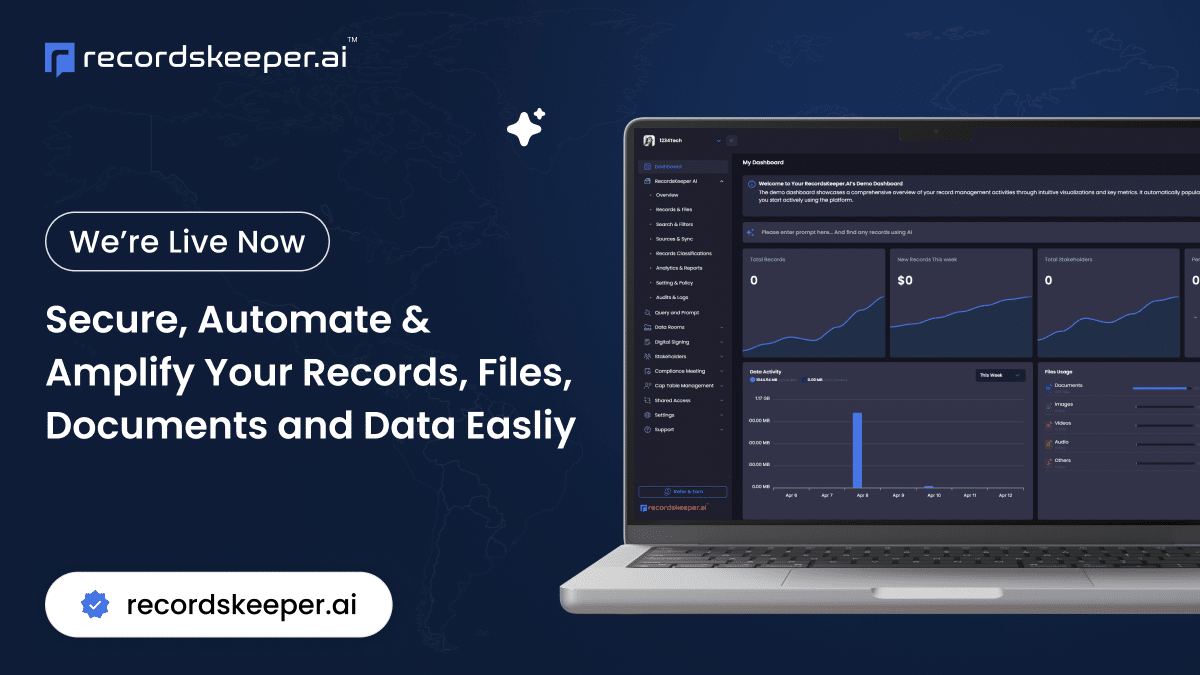Understanding the DHS Records Management Mission through Federal Regulations
In the complex landscape of government administration, the efficient management of records is not just a matter of bureaucratic procedure—it is a legal obligation that ensures transparency, accountability, and security. For the Department of Homeland Security (DHS) and other federal agencies, navigating this field means aligning with a patchwork of laws designed to uphold these values. The question often arises: which federal legislation supports the DHS records management mission? Understanding this is crucial for compliance professionals and IT departments across government agencies.
The Framework: Federal Legislation
Federal regulations governing records management are both numerous and intricate, but they form the backbone of legal adherence for DHS. Here are some pivotal legislative pieces that instruct and support the agency’s effort to manage its records systematically and securely:
- The Federal Records Act (FRA): The cornerstone of records management, the FRA mandates federal agencies to document essential transactions, ensuring records are retained and preserved. This statute provides the architecture for how agencies like DHS should classify, store, and maintain their records.
- The Electronic Government Act: This act advances the notion of electronic records, urging federal bodies to use digital means to manage information effectively. It fosters transparency and data accessibility while reducing redundancy and costs related to physical records management.
- National Archives and Records Administration (NARA) Guidance: Though not legislation per se, NARA offers crucial oversight and guidance on how records should be managed across federal agencies, including best practices to align with both the FRA and the E-Government Act. NARA’s role is instrumental in guiding agencies to stay compliant with records management laws.
Compliance in Action: Implementing Records Management
It is not enough to merely acknowledge these laws; the real task lies in implementation and ongoing adherence. For DHS, as well as other government entities, robust compliance with records management legislation ensures that operations run smoothly and securely.
Policy Formulation and Enforcement
As an integral part of the compliance framework, policy management is key. Agencies must develop robust record management policies that mirror legislative requirements while also addressing specific operational needs. For instance, automated policy enforcement—provided by platforms like RecordsKeeper.AI—can be a game-changer, ensuring that retention and deletion policies are consistently applied without the risk of human error.
Securing Sensitive Information
Another critical compliance aspect is securing records, especially those containing sensitive information. The protection of these records commonly aligns with policies stemming from acts like HIPAA—not only does compliance mitigate the risk of breaches, but it also ensures the confidentiality and integrity of data. With secure data rooms, agencies like DHS can control access to sensitive records while tracking document history, which is invaluable in auditing scenarios.
The Role of Technology in Compliance
In our digital age, technology supports and enhances compliance efforts in extraordinary ways. With the advent of AI and blockchain, modern records management takes a transformative turn, providing previously unimaginable utility and security features.
AI and Automation
AI-driven processes automate the categorization and retrieval of records, which significantly reduces the time and effort traditionally associated with compliance tasks. By automating workflows, federal agencies can ensure organizational workflows remain aligned with regulatory demands.
Blockchain for Integrity
Blockchains’ immutable nature guarantees that once recorded, a piece of data cannot be altered retroactively, which is critical for maintaining the integrity of records required for compliance. This technology provides a transparent, tamper-proof method for securing the vast array of documents that DHS needs to handle.
The Benefits of Compliance
Maintaining compliance with federal records management laws offers numerous benefits beyond mere legal adherence. Not only does effective record management enhance operational efficiency, but it also supports decision-making and helps build public trust in government operations.
Building Public Trust
When records are managed proficiently, it bolsters public confidence in how a government agency operates, highlighting its commitment to transparency and accountability—values enshrined in compliance laws.
Streamlined Operations
By aligning records management with federal mandates, DHS and similar entities can enjoy reduced redundancies, efficient data retrieval, and a smoother flow of information—factors that are integral to effective government operations.
Conclusion: A Call to Action
For cybersecurity and information management professionals within DHS, understanding and implementing compliant records management processes is no longer optional. As federal regulations continue to evolve, so must our strategies, ensuring records are managed in ways that are both legally sound and practically advantageous. By integrating advanced platforms like RecordsKeeper.AI into our processes, we can secure our records against future challenges while staying at the forefront of IT innovation across government agencies.
Learn more about how you can leverage technology for compliance and take advantage of undisputed records management systems to streamline your operations. Join me on this journey to modernize and secure our record-keeping landscape by diving deeper into the world of AI-driven solutions.








